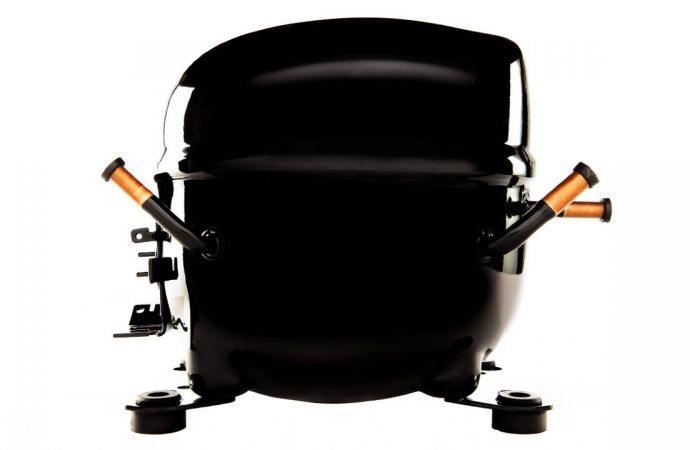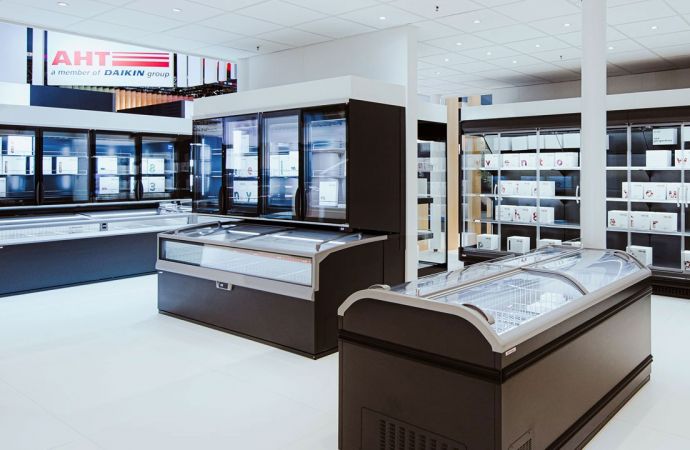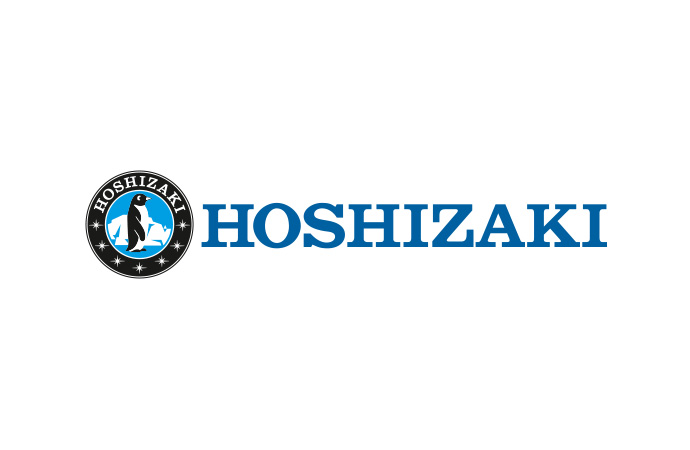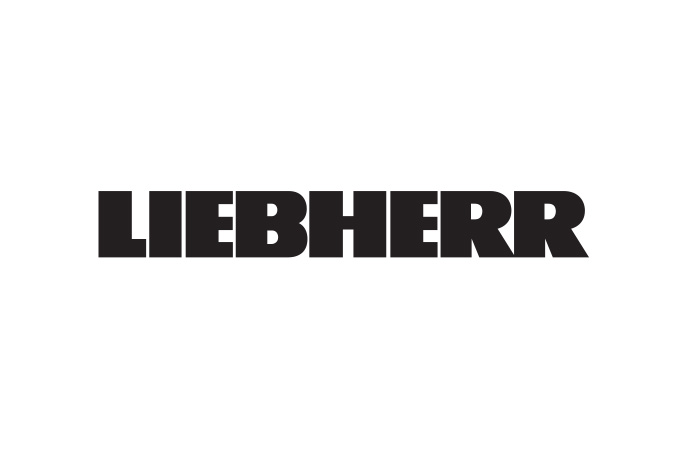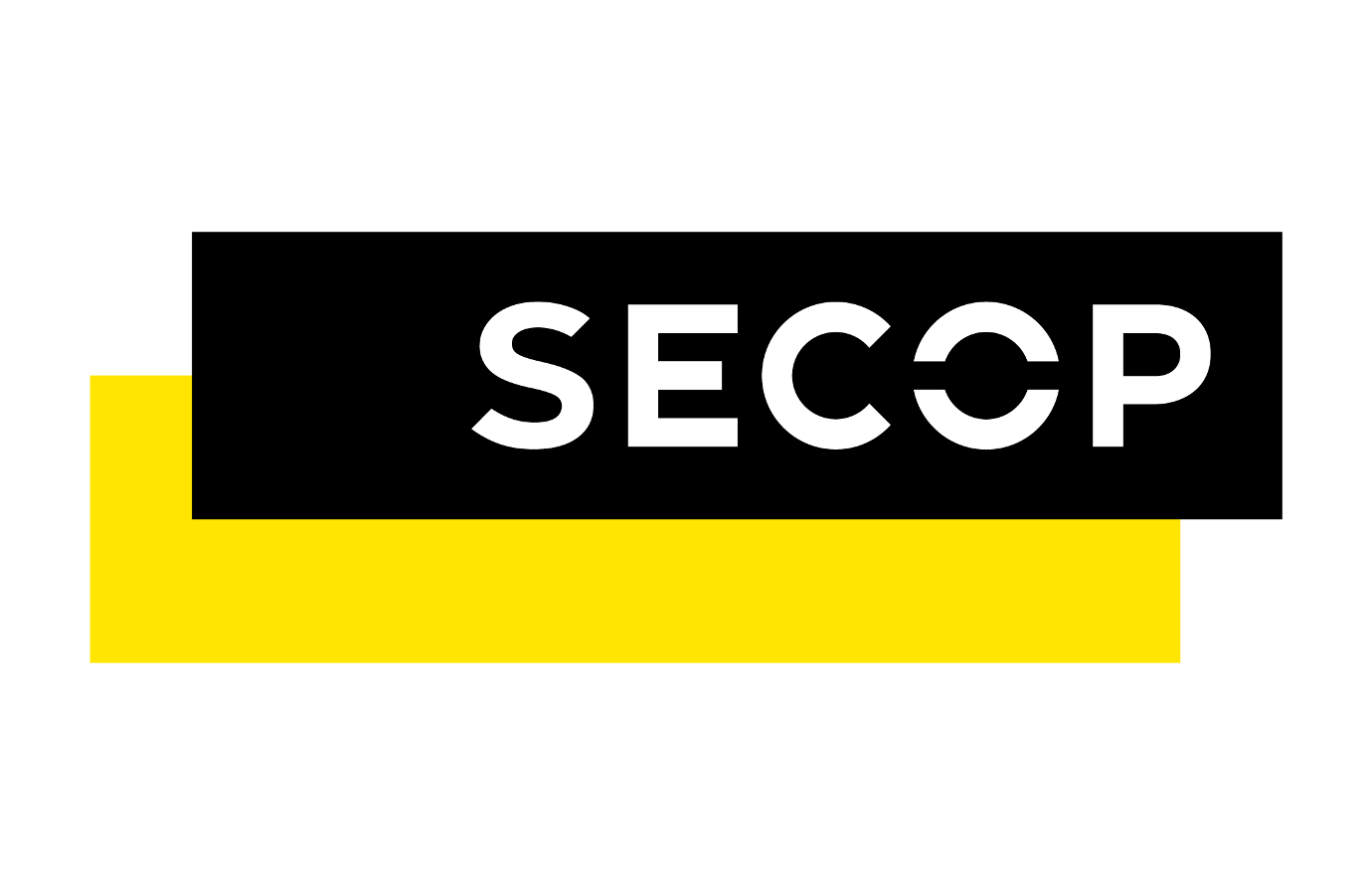A European project under the Horizon 2020 research and innovation programme, ProCold, recognised the most efficient and climate-friendly refrigeration equipment manufacturers.
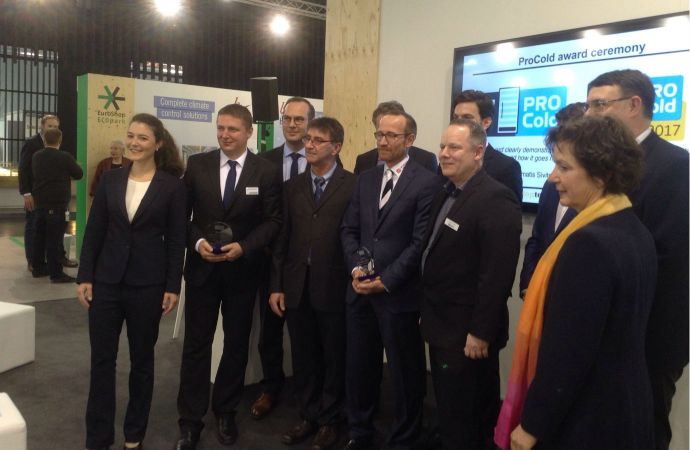
The ProCold Award winners at EuroShop 2017
At this year’s EuroShop, the EU-funded ProCold project – supported by the Horizon 2020 Research & Innovation Programme – honoured five natural refrigerant equipment manufacturers for their energy-efficient products.
“We’re going for energy efficiency and climate-friendly natural refrigerants,” Therese Kreitz of the French Environment and Energy Management Agency (ADEME) – one of the project partners – said at the EuroShop retail tradeshow in Düsseldorf last week.
The award ceremony took place on 7 March in the ECOpark Forum at EuroShop. Winners were recognised for their use of energy-efficient natural refrigerants in five product categories:
Most of the winners used hydrocarbon refrigerants, except for Sielaff, which has opted for CO2 as the refrigerant in its vending machines.
Vertical cabinets opt for hydrocarbons to get ahead
In Europe, the Hoshizaki Group sells Gram’s Superior Plus K72G vertical freezer, which has a net usable volume of 463 litres.
Its annual energy consumption is just 285 kWh, meaning that it has achieved an energy efficiency rating of A.
Gram was a pioneer in the use of hydrocarbon refrigerants in commercial refrigeration and adopted them over 15 years ago. Hydrocarbons have been standard across its entire range of professional storage refrigerators and freezers since then.
“We are delighted that our commitment to manufacturing energy-efficient refrigeration has been recognised by the important and influential ProCold Topten Project,” said Anders Sjøgaard, chief technology officer at Gram Commercial. “The award will help to further assure our existing and future Hoshizaki customers that they are choosing the most beneficial products for a green future.”
Inside the award-winning refrigerator is the high energy optimized compressor the Secop NLU-KK.1, which uses R600a as a refrigerant.
Where are the EU energy labels?
The project wants to work towards introducing an energy label at EU level. The European Commission is yet to introduce energy efficiency standards and labelling for commercial refrigeration.
We are the most efficient but unfortunately the big problem is we are not able to show it on our products.”
- Heiko Schulz, Liebherr's Internation Sales Manager - Food Retail
Heiko Schulz, International Sales Manager for Food Retail at Liebherr – the biggest winners on the day with two awards – told this website: “We are the most efficient but unfortunately the big problem is we are not able to show it on our products.”
The lack of a unified test methodology and energy efficiency rating system is a real challenge for energy saving initiatives in Europe. ADEME’s Kreitz noted the lack of a unifying energy label for the EU or by member states meant the market was not moving as quickly as it could towards energy efficiency and climate-friendly products.
Some energy labels do exist at the European level, for example under the Eco-Design Directive for household refrigerators, but not for commercial refrigerators. The labelling of domestic refrigerators at EU level has already led to a reduction in energy consumption of 66%, according to the ProCold project.
Related stories

